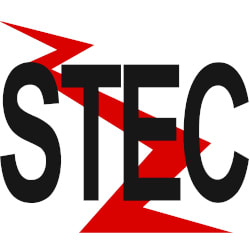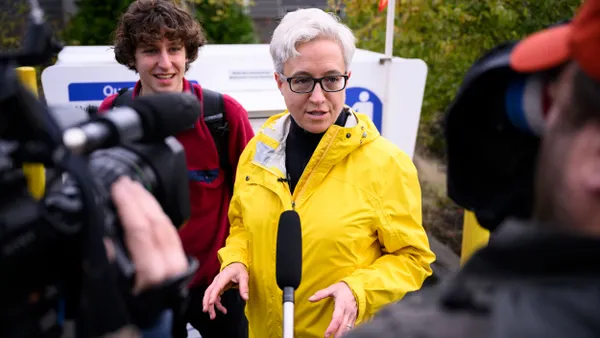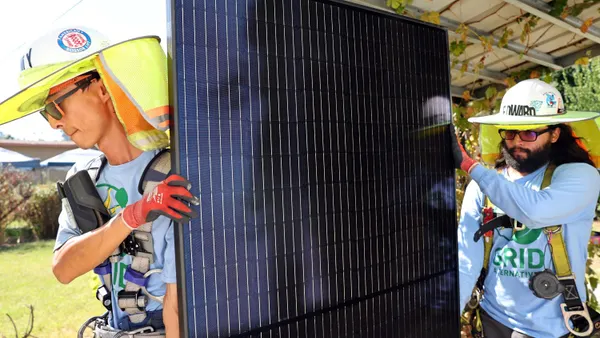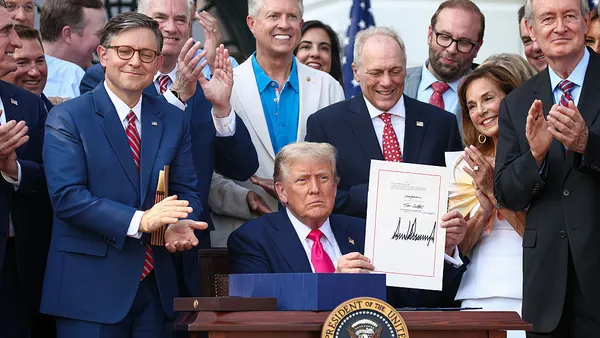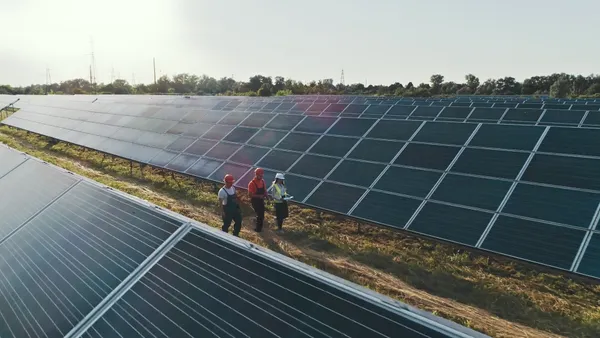Dive Brief:
- The Delaware Public Service Commission rejected the request from Vivint Solar for a guarantee it would not be regulated as a public utility or electric supplier if it provides third party ownership (TPO) financing in the state, the Associated Press reports.
- Vivint, the second biggest U.S. residential solar installer, asked for a declaratory order from the PSC assuring its TPO business activities building rooftop solar in Delaware could proceed without commission oversight.
- The PSC does not regulate the residential solar business, but TPO is controversial and unsettled legally in many states. The commission is expected to call for legislation or a formal rulemaking process offering guidance for entire solar industry.
Dive Insight:
TPO financing has revolutionized residential solar after 2010 by bringing billions in institutional money into the sector to eliminate high, upfront costs.
In 2014, TPO-financed solar sales were 72% of the market, according to a recent report from GTM Research. It is expected to be 63% of the U.S. market this year, and to remain over half the market for at least the next few years.
A basic TPO plan is built around a power purchase agreement (PPA) or a lease, with either option allowing an installer to put solar on a customer's property at no upfront cost. The installer has both the financial benefits of ownership, like the 30% federal investment tax credit, and the responsibilities of ownership, like maintainence.
In a PPA deal, that installer sells the array’s electricity to the property owner at a contracted price. At the end of the PPA contract term, the property owner can extend it or buy the array.
In a lease deal, the property owner has a lease-to-buy contract with the installer-funder. As with a car lease, the property owner makes regular payments and gets the use of the array, including its electricity, during the term as well as the option to renew or purchase when the lease expires.






